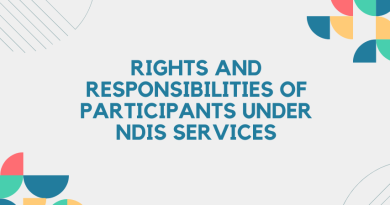Why working in healthcare services is a reliable career choice
There has never been a better time to work in the healthcare sector if you are looking for a steady, reliable career with plenty of scope for progression. The healthcare industry currently employs more people than any other sector in the U.S. Healthcare has always offered good job security because there is a constant need for the provision of healthcare services, and this need grows as the population increases. This demand is projected to continue to grow for many years to come.
Some of the factors that are contributing to the growth of the sector include an aging population, the need to make healthcare services more equitable, and the introduction of new healthcare technology.
The Bureau of Labor Statistics (BLS) has predicted that the number of jobs in healthcare services management will increase by 32% this decade. This means the rate of growth in healthcare will be higher than in any other sector in the U.S. In addition, the sector saw higher levels of staff attrition during the pandemic, with some leaving due to burnout and others due to ill health. As a result, there is an even greater demand for people to join the healthcare sector to fill the additional staff shortages.
Here is a closer look at some of the factors driving the rapid expansion of the healthcare services sector.
An aging population
The U.S. is currently undergoing a major demographic shift, with the number of people over the age of 65 set to increase by as much as 143% from 2018 to 2038. This will create a significant increase in demand for healthcare services, with two thirds of older people having at least two chronic conditions. Other issues faced by seniors include needing support with managing prescription drugs and mental health challenges.
More complex and growing needs and demands
As healthcare improves and medical care evolves, patients’ expectations regarding healthcare are growing. These increasing demands mean that the sector will need to grow overall. In addition, healthcare services need to expand to meet the needs of a growing population. Although population growth has slowed down in the U.S., it remains in net growth, which means there are hundreds of thousands of additional people who will need to be able to access healthcare services each year. It is forecasted that around 2.4 million new jobs will be created in the health industry overall by 2029, with continued growth in the following decade.
Advancing technology in healthcare
The technology used in healthcare is constantly evolving, and healthcare professionals must stay on top of the latest technology to make the most of its ability to help people. There are many roles in healthcare designed to provide the support required for safely introducing and using technology in healthcare.
Technology-resistant areas
Although technology is driving progress in some fields of healthcare, it has not had the same impact on the industry as it has in other fields. The complex and specialist nature of healthcare service provision means that there are many areas where automation is not a viable alternative to human resources. In these areas, growth in the demand for services can only be met by recruiting more people to deliver the services.
More equitable healthcare
Social factors such as income and location have a significant impact on many health outcomes for patients. Working in healthcare services management and administration gives you the opportunity to help address inequalities in access to healthcare and health outcomes. This may be accomplished by developing and introducing changes to policy and strategy at a high level, in addition to ensuring that effective care plans are put in place where they are needed at the client level.
The importance of healthcare services administration and management
Healthcare administrators and managers are responsible for the continued delivery of healthcare services. They need to have a broad spectrum of skills to take care of the business aspects as well as overseeing the delivery of healthcare. They must be well-versed in general business management, and they need to have an in-depth understanding of the healthcare industry and the issues specific to this sector.
At the most senior level, the business element of administration includes managing the profitability of the organization and ensuring that it can continue to operate. More junior roles may have responsibility for the profitability of a department or a particular service element. Healthcare administrators also need to ensure that the organization is delivering effective and relevant services to clients and communities.
Key responsibilities include:
- Strategic planning
- Managing operations and finance
- Project management
- Policy development
- Human resources
The best path into a career in healthcare services
There are some jobs in this sector that will not require an undergraduate degree, but many roles in healthcare will require a bachelor’s degree at a minimum. Once you have your bachelor’s degree and some years of relevant work experience, you may want to continue your studies with a master’s degree in healthcare.
What subjects are covered in a healthcare services degree?
A bachelor’s healthcare degree covers a wide range of subjects, including topics such as:
- Anatomy
- Biology
- Economics
- Health policy
- Public health
- Sociology
A bachelor’s degree in healthcare services will give you a broad learning experience, laying strong foundations for a career in this field. You may wish to look for opportunities to study some subjects in greater depth depending on your chosen career path. Many health services degrees offer a range of specializations you can choose from for particular majors, including:
Health services administration
- Administration
- Epidemiology
- Healthcare economics
- Health finance
- Health law and regulation
- Science ethics
Mental health services
- Aging and mental health
- Case management
- Clinical reasoning
- Evaluation and research methods
- Neuroscience
Nursing
- Foundations of nursing
- Human anatomy
- Microbiology
- Nutrition
- Nursing care
- Sociology
There is a vast range of career options open to you once you have completed your healthcare degree. The settings where you might choose to work include:
- Hospitals
- Clinics
- Dentists’ offices
- Outpatient care centers
- Home healthcare providers
- Insurance providers
- Pharmaceutical corporations
- Residential care facilities
- Diagnostic laboratories
A degree in health services from an institution like the Central Christian College of Kansas (CCCK) is designed to prepare you for a career in a range of healthcare areas. You will develop skills in evaluating the needs of clients and communities and devising appropriate interventions, along with learning management and leadership skills, including policy development and finance.
You will also develop an understanding of client cultural issues and the values and ethics of healthcare services. Many of these types of courses offer start dates through the year.
Can you study online for a healthcare services degree?
Yes. Many colleges offer online health services degrees, giving you the flexibility to study at your own pace and without commuting or relocating for a campus-based degree.
Skills and knowledge needed for a career in healthcare administration services
Here is a closer look at the knowledge and skills those in healthcare administration services should possess.
Analytical skills: Data analysis will be required in some roles in healthcare administration, such as in records and data management.
Communication: You will need to be able to communicate clearly and diplomatically with colleagues, third parties such as providers, and in some roles with patients. You may be discussing sensitive issues that need to be handled with care, such as finances, legal matters or medical issues.
Financial management: As a healthcare administrator, you may be responsible for managing billing and payments. You may also need to contact insurance providers.
Organizational skills: From managing schedules to arranging recruitment, healthcare administration requires high levels of organizational skills for managing operations and ensuring the smooth and efficient delivery of services.
Proficiency with technology: You will need to be able to use a range of systems, such as Electronic Health Record (EHR) systems.
Quality assurance: You must understand quality assurance requirements.
Regulatory expertise: In some roles, you will need an in-depth understanding of laws and regulations related to healthcare to ensure that facilities are compliant and are not exposed to liability.
Examples of healthcare services roles that are in high demand
Here are some of the healthcare services roles that are currently experiencing high demand.
Clinical Manager
A clinical manager oversees the running of a clinical practice. This individual is responsible for ensuring that business and administrative operations run smoothly so medical staff can deliver healthcare effectively to patients. Clinics may offer primary care services, or they might specialize in a particular area of health, such as reproductive or mental health care.
Regular tasks will include managing finances, coordinating staff and setting goals. A clinical manager may also be involved in preparing reports and policy development. Core competencies required for this role include leadership skills, communication skills and proficiency in healthcare systems.
Nursing Facility Administrator
This role will include overseeing the day-to-day management of nursing home operations, including looking after the maintenance of the building, managing finances and meeting with suppliers. You will also be responsible for the recruitment, training and supervision of employees. You will need a bachelor’s degree and a state license to be a nursing facility administrator.
Health Information Manager
As a health information manager, you will be responsible for managing large amounts of data and ensuring that appropriate policies are designed to keep data secure. You will likely manage a team of people who support you, so this role will require leadership skills as well as data management expertise.
Earning potential
Financial rewards may not be the main factor that motivates people to join the healthcare sector, but they are still an important consideration. Salaries in the healthcare sector vary considerably depending on the role and the establishment in which you work. Not only is there good earning potential in healthcare services, but it also offers financial security.
Unlike some more volatile sectors, the healthcare industry is very solid, with most employment offering excellent job security. With the industry already tackling inadequate levels of staffing and continued expansion projected for years to come, there is a good chance you will be able to remain in your role for as long as you want.
Opportunities for progression
As a growing sector, healthcare services will always need talented people to take on new challenges and progress into more senior positions. In some roles, there will be opportunities to develop new skills by working under someone in another department so you can build your network and explore whether there are other areas you might want to move into in the future. The healthcare sector tends to be very supportive of professional development and will provide plenty of opportunities for training and further education if you choose to study for additional qualifications.
Staff retention drives
The healthcare sector has suffered from higher levels of staff turnover in recent years, largely due to the COVID-19 pandemic. It is widely recognized that there are significant benefits to retaining more staff and minimizing attrition, so the sector is working to increase its retention rates.
Losing staff has many disadvantages for employers. It is both costly and disruptive, incurring additional costs for recruitment as well as training new staff. The cost of replacing a physician’s knowledge and experience is lost with the staff who leave, and although this can be compensated for over time with new staff, it can lead to periods of less efficient working while recruitment is carried out.
Staff losses are also disruptive to the dynamics of a department because it can take a team some time to adjust. Furthermore, in the healthcare sector, any staff shortages will have an impact on the delivery of healthcare services and on outcomes for patients, so it is particularly important to avoid shortages wherever possible.
All of this means that employers are eager to drive down staff losses to a minimum by incentivizing employees to choose to stay. This means that you can expect to see measures being taken in the healthcare sector such as more competitive pay, enhanced recognition programs and support for ongoing education, as well as a greater focus on employee engagement and communication.
Working in healthcare is good for you
Working in healthcare is a highly rewarding career choice. You have the satisfaction of knowing that every day, you are making a positive contribution to the health of others. Whether you are helping to make healthcare more readily accessible to certain populations or working on individual cases to support a patient or family through a difficult medical situation, you are sure to find the work rewarding. There are many varied roles in healthcare, presenting you with challenges that make your work interesting while keeping you motivated.
A fulfilling career has benefits not just for the people you are helping, but for you as well. You spend a significant proportion of your life at work, so how you feel about your work can have a huge impact on your overall quality of life.
Research by the American Psychological Association shows that meaningful employment offers many benefits, including higher general motivation levels and reduced stress. It adds to your sense of purpose and self-worth and can help to make you happier as a person.
People who feel their work is meaningless can be at risk of “boreout”, which is the opposite of burnout but comes with equally harmful risks, such as depression and anxiety. With a career in healthcare, you will always have the assurance of knowing that your work is important and meaningful. Therefore, improving the health of others can also be good for your own health.
Variety of roles
The healthcare sector is so wide-ranging that there are career opportunities to suit all types of personalities. If you are the sort of person who thrives on pressure and doesn’t mind long hours, you may opt to work in a frontline hospital role, while those who work better in a calmer environment with more regular hours may prefer roles in healthcare administration, research laboratories or health insurance.
Working pattern flexibility
With such a wide variety of roles available in healthcare, you can find jobs with many different work schedules. This is ideal if you need to fit your work around other commitments, such as childcare or caring for an elderly relative. It can also be helpful if you wish to work while you complete a study program, with some roles offering flexible or part-time hours.
Whatever career path you ultimately choose, you can be confident that earning a bachelor’s degree in healthcare services will open a wealth of opportunities for you in the healthcare sector.




